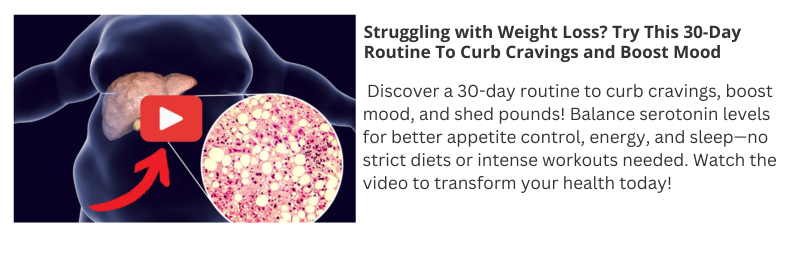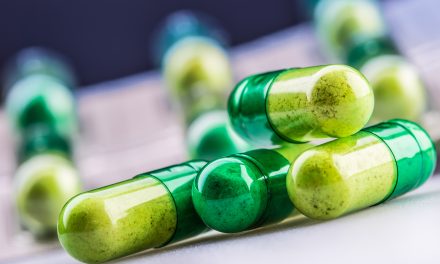Determining the most effective time to take probiotics can be essential for maximizing their health benefits. Probiotics include various types of ‘good’ bacteria that aim to bolster the microbiota, influencing not only digestion but potentially overall health. The debate about timing revolves around the idea that the survival of these bacteria through the harsh gastric environment of the stomach is crucial for them to reach the intestines, where they exert their beneficial effects.

Experts and studies suggest that taking probiotics before meals, particularly with a small amount of water, might improve their survival rate from stomach acids, thereby increasing their effectiveness. Depending on the specific probiotic strains and the individual’s unique digestive system, the time frame for consumption could slightly vary. It is recommended to maintain a consistent routine when taking probiotics to reap the most benefits. Also, acknowledging potential interactions with medications and managing side effects can help tailor a probiotic regimen that fits well with an individual’s health needs and lifestyle.
Key Takeaways
- Probiotics are best taken before meals to enhance their survival through the stomach.
- Consistency in probiotic intake plays a significant role in their effectiveness for gut health.
- An informed approach to taking probiotics considers medication interactions and manages possible side effects.
Understanding Probiotics
Before delving into the best times for probiotic consumption, one must have a clear grasp of what probiotics are, their critical role in gut health, and the various strains that offer different benefits.
Defining Probiotics
Probiotics are live microorganisms that, when administered in adequate amounts, confer a health benefit on the host. These microorganisms are often referred to as “good” or “beneficial” bacteria. They are naturally present in the digestive system but can also be boosted through food or probiotic supplements.
The Role of Probiotics in Gut Health
The primary role of probiotics is the maintenance of a healthy balance in the gut. They contribute to gut health by regulating the intestinal environment, inhibiting the growth of harmful bacteria, and enhancing the barrier function of the intestinal lining. Probiotics are involved in numerous bodily functions, including digestion, vitamin production, and immune defense.
Different Strains and Their Benefits
Each probiotic strain has specific characteristics and potential benefits. For instance, Lactobacillus strains are particularly good at preventing diarrhea and may also help those who are lactose intolerant. On the other hand, Bifidobacterium is known for its ability to ease irritable bowel syndrome (IBS) and may improve overall gut health. It’s essential to choose the right strain based on individual health needs.
Probiotics and Digestion
Probiotics play a vital role in enhancing gut health by assisting with digestion and maintaining bowel regularity. Their function in the digestive system can help alleviate common digestive disorders.
How Probiotics Enhance Digestive Health
Probiotics contribute to digestive health by balancing the gut microbiome, a complex community of microorganisms instrumental to gut functionality. They interact with gut flora to help break down food, which can lead to less bloating and discomfort. Studies suggest that certain strains of probiotics can produce enzymes that aid in digestion, especially in the breakdown of lactose, which some individuals struggle to digest fully.
Bowel Regulation: Their influence extends to bowel regularity, with the potential to reduce symptoms of constipation and diarrhea. The presence of healthy probiotics in the gut can encourage a more consistent and balanced bowel movement pattern, helping to both solidify stools in diarrhea and alleviate the difficulty associated with constipation.
Probiotics for Bowel Regulation
Regular intake of probiotics may also help manage bowel conditions, such as Irritable Bowel Syndrome (IBS), by promoting a stable digestive environment. They can normalize bowel movements, contributing to overall digestive health and potentially reducing the incidence of both constipation and diarrhea in affected individuals. Maintaining a healthy balance of gut bacteria through probiotics is thus a key factor in digestive well-being.
Best Practices for Probiotic Intake

Probiotic supplements can contribute to a healthy gut microbiome, and their benefits are closely tied to the timing and context of intake. These protocols can help maximize the effectiveness of probiotic supplements.
Optimal Timing for Probiotic Consumption
The best time to take probiotics is a matter of some debate, but there is a consensus that consistency is vital. Lactobacillus and Bifidobacterium, common probiotic strains, have been found to survive in greater numbers when they are ingested 30 minutes before a meal. Some experts recommend taking probiotics before breakfast. This is because the morning meal typically contains moderate amounts of fat, which can aid in the absorption of probiotics.
With Meals or On an Empty Stomach
Should probiotics be taken with meals or on an empty stomach? This question is significant because the acidity of the stomach, which is naturally lower on an empty stomach, can damage probiotic organisms. While some evidence suggests that certain strains may survive better when taken shortly before a meal, ultimately, the presence of food—especially a small amount of fat—can buffer stomach acid and support the viability of probiotics. For this reason, it might be preferable to take probiotics with a meal rather than on an empty stomach. Here’s a concise table summarizing the recommendations:
| Timing | Recommendation |
|---|---|
| Morning | Preferable, especially before breakfast |
| With Food | Yes, especially with a small amount of fat |
| Empty Stomach | Less advisable due to stomach acidity |
By adhering to these practices, individuals may experience improved digestive health and greater overall benefits from their probiotic regimen.
Probiotic-Friendly Foods and Supplements

Probiotics are beneficial bacteria that can be found in various foods and supplemental forms. This section details how to incorporate them into your diet and what to consider when choosing supplements.
Incorporating Fermented Foods Into Your Diet
Fermented foods are natural sources of probiotics that have been part of human diets for centuries. Including yogurt, kefir, kimchi, and sauerkraut in one’s diet not only contributes to gut health but also offers a diversity of flavors and nutrition. One can start their day with a bowl of yogurt or add a side of kimchi or sauerkraut to lunch or dinner.
- Yogurt: Choose varieties that contain live and active cultures.
- Kefir: A fermented milk drink similar to yogurt but with a thinner consistency.
- Kimchi: A Korean delicacy made from fermented vegetables, typically seasoned with chili peppers and other spices.
- Sauerkraut: Fermented cabbage that can complement meat dishes or be used as a topping.
Choosing High-Quality Probiotic Supplements
Selecting the right probiotic supplements involves looking for reputable brands that provide transparency about the strains of bacteria used and their CFU (colony-forming units) count. Supplements are often available in capsule form, making them a convenient choice for those looking to enhance their diet with probiotics.
- Quality: Research brands with proven efficacy and high-quality standards.
- Capsules: Check for delayed-release capsules that protect probiotics from stomach acid.
When opting for supplements, consider factors such as the type of strains included and their suitability for your nutritional needs. It is also advisable to verify if the product contains prebiotics, which serve as food for the probiotics, enhancing their effect.
Impact of Probiotics on Health Conditions

Probiotics can influence various health conditions, particularly through modulating the immune system and managing gastrointestinal issues like Irritable Bowel Syndrome (IBS).
Probiotics and the Immune System
Probiotics consist of beneficial bacteria that play a crucial role in the maintenance of a healthy immune system. Clinical studies suggest that regular intake of specific probiotic strains can enhance immune function by increasing the production of natural antibodies and promoting the activity of immune cells such as natural killer cells, T lymphocytes, and macrophages. For individuals with autoimmune disorders like ulcerative colitis, probiotic therapy may help in managing the condition by reducing inflammation and potentially moderating the immune response.
Managing IBS and Other Gastrointestinal Issues
Probiotics are widely recognized for their effectiveness in managing Irritable Bowel Syndrome (IBS) and other gastrointestinal conditions. By balancing the gut microbiota, probiotics can alleviate symptoms of IBS which include bloating, gas, constipation, and diarrhea. Research has shown a marked improvement in digestive health for individuals taking probiotics, which can also impact the frequency and severity of flare-ups in conditions such as ulcerative colitis. However, some people may experience mild side effects such as bloating during the initial period of taking probiotics as the body adjusts to the new bacterial environment.
Potential Side Effects and Precautions
While probiotics are generally safe, they can cause side effects in some individuals. Understanding these potential effects and knowing when to seek medical advice are crucial.

Common Side Effects of Probiotics
Probiotics can lead to minor side effects, especially during the initial days of consumption. The most common symptoms include gas, bloating, and discomfort in the abdominal region. These symptoms are typically temporary and should subside as the body adjusts to the increase in beneficial bacteria.
When to Consult a Healthcare Provider
One should consult a doctor or healthcare provider if side effects persist or worsen over time. It’s important to seek professional advice if one experiences severe reactions such as allergic symptoms, intense abdominal pain, or unusual changes in bowel movements. These could indicate adverse reactions that require medical attention.
Interactions Between Probiotics and Medications

When incorporating probiotics into one’s regimen, it is critical to understand their interactions with various medications, particularly antibiotics. These interactions can influence the effectiveness of the probiotics and the medications involved.
Probiotics and Antibiotics
Antibiotics are designed to eliminate bacteria, but they do not distinguish between harmful pathogens and beneficial probiotic bacteria. It’s suggested to stagger the timing of probiotic and antibiotic doses to minimize the chance of antibiotics eradicating the beneficial bacteria. For instance, if one takes an antibiotic in the morning, they should consider taking the probiotic later in the day, ensuring there’s enough time for the antibiotic to be absorbed and less likely to interfere with the probiotic.
- Take Probiotics 2 hours after Antibiotics:
- Helps ensure survival of probiotic bacteria
- Aims to restore gut balance disrupted by antibiotics
Considering Other Medications and Supplements
When someone is on multiple medications or supplements, the potential for interactions increases. Some components in supplements may be in direct conflict with probiotics, reducing their effectiveness, while others may enhance the beneficial effects. For example, antifungal medications could alter the internal environment in which probiotic bacteria thrive. One should consult healthcare professionals before starting probiotics, especially when they are already on a regimen of other medications and supplements.
- Consult a Healthcare Provider:
- To understand possible interactions
- To determine optimal timing for probiotic intake
Probiotics Beyond Digestive Health

While probiotics are well recognized for their role in digestive health, their benefits extend to other areas such as managing allergies and improving skin conditions, as well as contributing to mental wellness. These live microorganisms, when taken in adequate amounts, may bolster the immune system and offer a promising adjunct to traditional treatments.
Allergies and Skin Conditions
Research suggests that probiotics may influence the immune system and potentially reduce the severity of allergies. Specific strains of probiotics, for instance, have been linked to a reduced incidence of eczema in children and adults. The underlying mechanism involves the modulation of the body’s immune response, which may alleviate allergic symptoms. It’s essential to select the appropriate strain of probiotics that target specific allergies or skin conditions for optimal results.
Probiotics and Mental Wellness
The term “gut-brain axis” is critical in understanding the impact of probiotics on mental wellness. This bidirectional communication pathway implies that a healthy gut microbiota can positively influence brain health. Studies indicate that certain probiotics can be beneficial for individuals experiencing mental wellness challenges, such as anxiety or depression. These effects are thought to be mediated through immune system modulation, as well as the production of mood-regulating neurotransmitters. Maintaining a balanced gut flora through the use of probiotics may, therefore, contribute to improved mental health outcomes.
Scientific Research and Expert Opinions

In determining the optimal time for probiotic consumption, scientific research and expert opinions offer valuable insights. They focus on efficacy and the prevention of gastrointestinal disturbances, supported by published studies and gastroenterology perspectives.
Published Studies on Probiotics
Published studies on probiotics consistently suggest that the timing of probiotic intake plays a crucial role in their effectiveness. For instance, research indicates that probiotics are most effective when taken 20 to 30 minutes before a meal. This timing allows the probiotics to reach the gut when it is less acidic, therefore ensuring a greater survival rate for the beneficial bacteria. A publication from Good Housekeeping supports this claim, highlighting how mealtime coordination can impact probiotic efficacy.
Gastroenterology Perspectives
Experts in gastroenterology emphasize the importance of aligning probiotic consumption with natural gut physiology for maximum benefit. According to a Prevention article, taking probiotics before breakfast may be preferred, as this could coincide with a naturally lower stomach acidity in the morning, thus improving the probiotic survival rate. The strategies for the prevention of gastrointestinal issues through probiotic use is a recurring theme in expert discussions; however, it is the specific timing that is often emphasized as a critical factor. The perspectives offered in notable publications, like Today and Healthline, substantiate these views with opinions from leading gastroenterologists.
How to Maintain Probiotic Efficacy
Probiotics require proper storage and an understanding of their shelf life to maintain efficacy. Ensuring these microorganisms remain viable until consumption is vital for them to be beneficial.
Storage and Handling of Probiotics
Probiotics are living organisms, and their effectiveness is heavily influenced by how they are stored and handled. Maintaining a cool, dry environment for probiotic foods and supplements is generally recommended to preserve their potency. Refrigeration is often required, particularly for live cultures in products like yogurts or other fermented foods. The temperature should ideally be kept at or below 4°C (39°F), though it’s important to follow the specific guidelines provided on the product packaging.
- Do:
- Store in a refrigerator if indicated
- Keep containers tightly sealed
- Place in a dry area to prevent moisture damage
- Don’t:
- Expose to heat or direct sunlight
- Leave packaging open
- Store in damp places
Understanding Shelf Life and Viability
Probiotic supplements and foods come with an expiration date, which indicates the time frame for optimal viability of the probiotic cultures. After the stated period, the shelf life may be compromised, potentially reducing the efficacy of the probiotics. Manufacturers determine this date by assuming the product is stored correctly. Be sure to read labels closely for each product, as viability can vary significantly between different strains and forms of probiotics.
- Key points:
- Expiration Date: Closer attention to this date helps consume the product while it retains its efficacy.
- Batch Testing: Some manufacturers conduct tests to ensure continued viability up to the expiration date.
- Delivery System: The encapsulation method for probiotic supplements can affect the survival of probiotics through stomach acid and into the intestines, which is essential for their effectiveness.
Frequently Asked Questions
The timing of probiotics can influence their effectiveness, particularly for digestive health, and it may vary depending on individual health goals and conditions.
What is the best time of day to take probiotics for digestive health?
For optimal digestive health, probiotics are often recommended before a meal. A study points out that more bacteria tend to survive when probiotics are brought before a meal rather than after.
Is it more beneficial to take probiotics before or after meals?
Taking probiotics before meals may increase their survival rate through the gastric system. The protective effects of food can help buffer stomach acid and increase the chances that the probiotics reach the gut.
How does taking probiotics at night affect gut health compared to taking them in the morning?
Some studies suggest that the gut microbiome is subject to circadian rhythms, which may influence the effectiveness of probiotics. However, no definitive evidence suggests that taking probiotics at night is significantly different from taking them in the morning.
Are there any specific considerations for taking probiotics when trying to lose weight?
While evidence on probiotics and weight loss is still emerging, some research suggests that the strain of bacteria matters more than the timing. It’s essential to consult with a healthcare provider for personalized advice.
Should you adjust the timing of probiotic intake when taking antibiotics?
Probiotics may help offset antibiotic-associated side effects a few hours after antibiotics. This timing can help to restore normal gut flora disrupted by antibiotic treatment.
How long should you wait to consume caffeinated beverages after taking probiotics?
Caffeinated beverages can potentially harm probiotic bacteria. It’s advisable to wait at least 30 minutes to an hour after taking probiotics before consuming such beverages to maximize probiotic survival and colonization.















